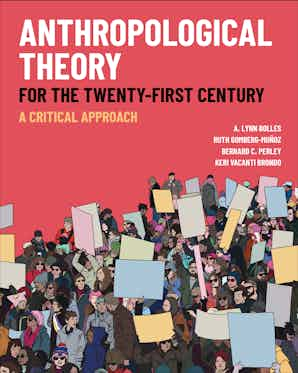

Welcome
This is the companion website for Anthropological Theory for the Twenty-First Century edited by A. Lynn Bolles, Ruth Gomberg-Muñoz, Bernard C. Perley and Keri Vacanti Brondo.
The site offers resources that complement and expand on the readings in each section of the book.
Comments, queries, and advice are always welcome. Please contact University of Toronto Press with feedback or suggestions.